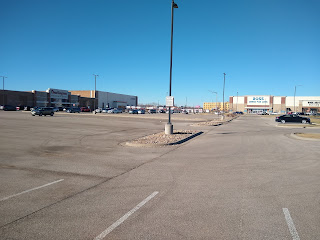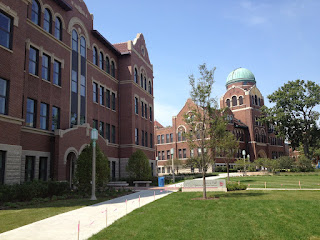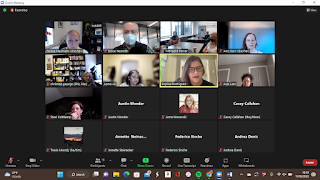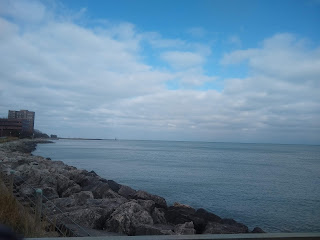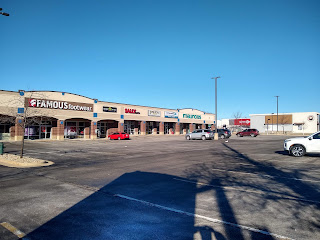 |
| Strip mall, Edgewood Rd SW, 9:45 a.m. |
On the southwest side of Cedar Rapids, there is a triangle formed by three stroads: Edgewood Road, Wiley Boulevard, and Williams Boulevard. Average daily traffic counts are roughly 19000 for Edgewood, 9000 for Williams, and (from 2017) 14000 for Wiley. Until about ten years ago, they surrounded Westdale Mall; since that was demolished, they serve a large Wal-Mart, a large Target, and numerous shopping plazas and stand-alone stores.
The area made for an irresistible subject for my 2022 #BlackFridayParking survey, part of the annual Strong Towns event. The area is clearly meant to be driven to; it is served by three bus routes (8,10,12) but the system runs only during the day, and today was running a reduced version of that due to the holiday weekend. Walking between stores is extremely difficult, I can attest. There's a lot of traffic, moving quickly, from various directions. I relied on my remaining agility and the kindness of strangers to get places and return safely to you.
It was a lovely day, sunny and unseasonably warm. I got to Target about 10:00 a.m., too late for the doorbuster sales, but still in time to see a sizeable crowd of cars and shoppers.
 |
| Target, 3400 Edgewood Rd SW, lot 2/3 full at 9:45 a.m. |
Down the street at Wal-Mart, the situation was even more pronounced: Many, many shoppers and cars...
 |
| View from the front door |
...but much unused parking.
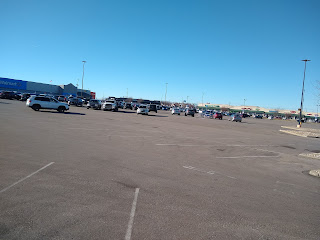 |
| Wal-Mart Supercenter, 3601 29th Av SW, lot 1/2 full at 10:00 a.m. |
Away from the two retail giants, crowds were thinner and parking lots were emptier.
 |
| Strip mall across from Wal-Mart |
Kohl's had some traffic near the entrance to their lot...
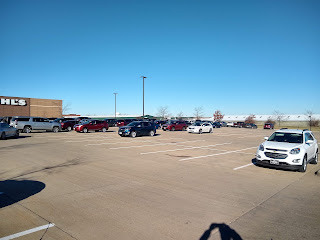 |
| Kohl's, 3030 Wiley Blvd SW, lot 1/3 full at 10:00 a.m. |
 |
| Parkway West, 3998 Westdale Parkway |
The main purpose of Strong Towns' annual #BlackFridayParking event is to highlight to #EndParkingMinimums, provisions of zoning codes that require large stores to have even larger parking lots. Cedar Rapids' zoning code has those provisions, but the parking lots I surveyed seem to be substantially larger than required, albeit I haven't counted spaces.
Even if zoning requirements do not fully account for this appalling design, public policy has a hand in it. Property tax policy allows property owners to pay low rates on large swaths of unproductive land. City officials everywhere have a preference for big "wins," including attracting and accommodating a large franchise operation, over the economic gardening that nurtures local businesses. (See Alter 2022 on the many benefits of small locally-owned businesses over the big-box franchises.)
The result is a car-chocked landscape, full of expensive infrastructure that the widely dispersed businesses ultimately can't support, stressing drivers and practically prohibiting pedestrians. For financial, environmental, and community reasons, we need to do better. We have what we have in unholy triangles like the one I haunted today, but we need to start thinking differently and designing our cities better. As they say at Strong Towns, "Having 'enough' parking is always going to be less important than creating a place people want to be."


